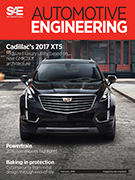Standard
Cybersecurity for Propulsion Systems
2023-09-05
CURRENT
AIR7368
The purpose of this SAE Aerospace Information Report (AIR) is to provide guidance for aircraft engine and propeller systems (hereafter referred to as propulsion systems) certification for cybersecurity. Compliance for cybersecurity requires that the engine control, propeller control, monitoring system, and all auxiliary equipment systems and networks associated with the propulsion system (such as nacelle systems, overspeed governors, and thrust reversers) be protected from intentional unauthorized electronic interactions (IUEI) that may result in an adverse effect on the safety of the propulsion system or the airplane.


